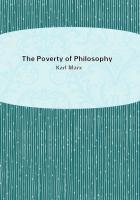If one has made an induction on the strength of several cases and yet the answerer refuses to grant the universal proposition, then it is fair to demand his objection. But until one has oneself stated in what cases it is so, it is not fair to demand that he shall say in what cases it is not so: for one should make the induction first, and then demand the objection. One ought, moreover, to claim that the objections should not be brought in reference to the actual subject of the proposition, unless that subject happen to be the one and only thing of the kind, as for instance two is the one prime number among the even numbers: for, unless he can say that this subject is unique of its kind, the objector ought to make his objection in regard to some other. People sometimes object to a universal proposition, and bring their objection not in regard to the thing itself, but in regard to some homonym of it: thus they argue that a man can very well have a colour or a foot or a hand other than his own, for a painter may have a colour that is not his own, and a cook may have a foot that is not his own. To meet them, therefore, you should draw the distinction before putting your question in such cases: for so long as the ambiguity remains undetected, so long will the objection to the proposition be deemed valid. If, however, he checks the series of questions by an objection in regard not to some homonym, but to the actual thing asserted, the questioner should withdraw the point objected to, and form the remainder into a universal proposition, until he secures what he requires; e.g. in the case of forgetfulness and having forgotten: for people refuse to admit that the man who has lost his knowledge of a thing has forgotten it, because if the thing alters, he has lost knowledge of it, but he has not forgotten it. Accordingly the thing to do is to withdraw the part objected to, and assert the remainder, e.g. that if a person have lost knowledge of a thing while it still remains, he then has forgotten it. One should similarly treat those who object to the statement that 'the greater the good, the greater the evil that is its opposite': for they allege that health, which is a less good thing than vigour, has a greater evil as its opposite: for disease is a greater evil than debility. In this case too, therefore, we have to withdraw the point objected to; for when it has been withdrawn, the man is more likely to admit the proposition, e.g. that 'the greater good has the greater evil as its opposite, unless the one good involves the other as well', as vigour involves health. This should be done not only when he formulates an objection, but also if, without so doing, he refuses to admit the point because he foresees something of the kind: for if the point objected to be withdrawn, he will be forced to admit the proposition because he cannot foresee in the rest of it any case where it does not hold true: if he refuse to admit it, then when asked for an objection he certainly will be unable to render one. Propositions that are partly false and partly true are of this type: for in the case of these it is possible by withdrawing a part to leave the rest true. If, however, you formulate the proposition on the strength of many cases and he has no objection to bring, you may claim that he shall admit it: for a premiss is valid in dialectics which thus holds in several instances and to which no objection is forthcoming.
Whenever it is possible to reason to the same conclusion either through or without a reduction per impossibile, if one is demonstrating and not arguing dialectically it makes no difference which method of reasoning be adopted, but in argument with another reasoning per impossibile should be avoided. For where one has reasoned without the reduction per impossibile, no dispute can arise; if, on the other hand, one does reason to an impossible conclusion, unless its falsehood is too plainly manifest, people deny that it is impossible, so that the questioners do not get what they want.
One should put forward all propositions that hold true of several cases, and to which either no objection whatever appears or at least not any on the surface: for when people cannot see any case in which it is not so, they admit it for true.
The conclusion should not be put in the form of a question; if it be, and the man shakes his head, it looks as if the reasoning had failed. For often, even if it be not put as a question but advanced as a consequence, people deny it, and then those who do not see that it follows upon the previous admissions do not realize that those who deny it have been refuted: when, then, the one man merely asks it as a question without even saying that it so follows, and the other denies it, it looks altogether as if the reasoning had failed.
Not every universal question can form a dialectical proposition as ordinarily understood, e.g. 'What is man?' or 'How many meanings has "the good"?' For a dialectical premiss must be of a form to which it is possible to reply 'Yes' or 'No', whereas to the aforesaid it is not possible. For this reason questions of this kind are not dialectical unless the questioner himself draws distinctions or divisions before expressing them, e.g. 'Good means this, or this, does it not?' For questions of this sort are easily answered by a Yes or a No. Hence one should endeavour to formulate propositions of this kind in this form. It is at the same time also perhaps fair to ask the other man how many meanings of 'the good' there are, whenever you have yourself distinguished and formulated them, and he will not admit them at all.
Any one who keeps on asking one thing for a long time is a bad inquirer. For if he does so though the person questioned keeps on answering the questions, clearly he asks a large number of questions, or else asks the same question a large number of times: in the one case he merely babbles, in the other he fails to reason: for reasoning always consists of a small number of premisses. If, on the other hand, he does it because the person questioned does not answer the questions, he is at fault in not taking him to task or breaking off the discussion.















